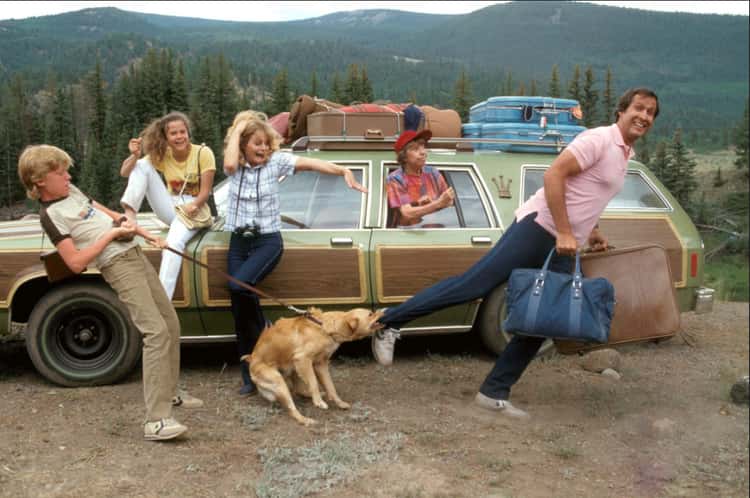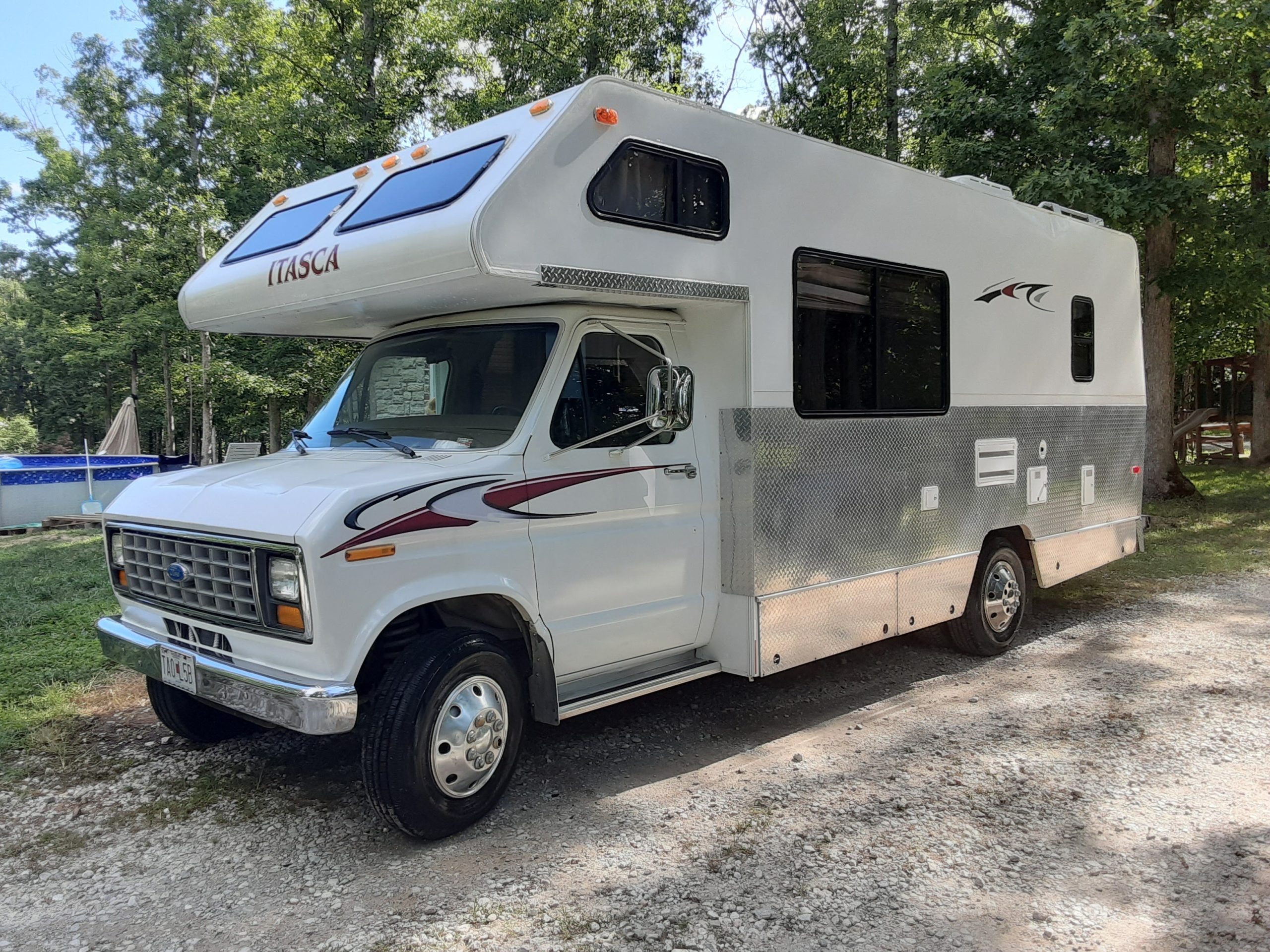This topic will be debated till the end of time, but in my eyes, an extended warranty for your RVs is not really worth the money. For me, it is the law of averages and for every warranty, I have bought in my life, I have never used one. I know many people have put them to use and have saved tons of money as a result though. Just my experience with them!
I am a mechanical person and usually fix things myself unless it is a major component that goes out. Spending 10, 12, or even 15 thousand dollars on an extended warranty is just not in my wheelhouse. Before you buy one, let’s talk about Extended Warranty RV myths, and what you need to know before you buy.
Let me start by saying, I am not an expert in the field of extended warranties. I am just speaking from real-life experiences and the law of averages.
My theory: If you are quoted say $10,000 for an extended warranty, place those funds in a good accessible investment. If you happen to need a repair, just remove what is needed and let the remainder earn interest.
If you never need those funds, you will have a nice little surprise in 5 years with no money wasted.
These companies are very good at calculating the average amount spent on each different RV model. Let them set the standard for how much you need to set aside.
Again, just my thoughts on an extended warranty.
Table of Contents
- What is an Extended RV Warranty?
- How much do Extended Warranties cost for RVs?
- The Myth of Extended Warranties
- The Truth about Extended Warranties
- Is an RV Extended Warranty worth the cost?
- How long is the Warranty on a new RV?
- How long does Extended Wannties last?
- Should I roll the cost into my loan?
- Is a High deductible a good choice?
- Do I have options with Extended RV Warranties?
- Where can I go for my repairs?
- What is covered under my Extended RV Warranty policy?
- What may not be covered?
- Best Extended RV Warranty companies
- Things to think about
- Conclusion

What is an Extended RV Warranty?
An extended RV warranty is intended to cover the cost of major repairs after your original manufacturer’s warranty expires. Extended warranties are often sold by dealers, but can also be purchased from third-party sellers.
Depending on the RV Extended Warranty policy, repair and replacement coverage may vary. What do extended warranties for RVs cover?
How much do Extended Warranties for RVs cost?
The cost of a policy varies greatly depending on the type of RV you have and your selected coverages. The price can range between $2,000 for a small towable camper and up to $20,000+ for a large luxury class A.
Some variables that impact RV Extended Warranty cost
- Type of RV – Motorhomes (Class A, B, or C) are more expensive than towable RVs like 5th wheels, toy haulers, and travel trailers.
- Make/model – Generally, the more expensive the RV, the more expensive the coverage.
- Year and mileage – Older units are more likely to have issues, so coverage costs more.
- Coverage level – Exclusionary plans are more expensive than listed-component ones.
- Coverage length – Longer plans have a lower annual rate.
- Full-time or commercial use – Units in constant use require an additional charge.
- Where you buy – RV owners generally pay more when purchasing extended warranties from RV dealers, especially when financing the cost.
The myth! Extended warranties save all their customers thousands in repair costs.
First of all, these companies are not in the game to lose money, they are out to make huge profits. For every story you hear about someone that saved thousands of dollars due to their slot bonus new member warranty, there are 10 others that never used the policy once.
The Truth! Someone has to pay for this company’s employees to go on vacation, Will that be you?
These companies do tons of research and try to calculate the average repair cost for an RV. In the car industry, this calculation is multiplied 6 times and that is what the extended warranty will cost the consumer. Consumer reports even say warranties are just “money down the drain”. I tend to agree as I have never used any of the few I have purchased. It would be nice to have all that money back that I invested into nothing.
Furthermore, knowing they are out to make a profit, remember:
- They have to calculate into your price the average cost of repairs for the life of your RV
- They must pay the salaries and any bonuses for their employees
- Pay salesman commission of anywhere from 35-50%
- Lastly, take into consideration the ever-growing cost of insurance
These costs are all taken into account when their computers whip up a number saying it is for your own peace of mind.
If you are searching for an extended warranty for RVs, you may also be shopping for RV insurance. If this is the case, we have a great article about the Top 5 RV insurance companies for 2022
Detailed study data even shows warranties are just “Money down the Drain”
Consumer Reports
Top-rated extended warranty for RVs companies

Peace of mind!
Chances are you will not get your money’s worth from an extended warranty, but it can provide peace of mind. Purchasing the service contract will limit the worst possible outcomes because they cover the worst-case scenario items. You will probably lose money, but you heavily mitigate the financial strain of unexpected breakdowns.
Is an extended warranty for your RVs worth the cost?
The simple answer is NO, Consumer Reports even says it’s “money down the drain.” That is not to say you are not going to have a breakdown that cost big money to fix, but odds are against you getting your money’s worth out of it. If you are just wanting that peace of mind you can purchase, but most likely what breaks won’t cost nearly as much as what you are going to pay for that peace of mind.
Prices are all over the place depending on the state you live in and the value of your purchased item you want to be covered. For an RV they can range from the $1,000s for a short-term travel-trailer plan to $20,000 with some companies for a top-of-the-line, high-mileage motorhome.
What is the warranty on a new RV?
Most of the time you will only get a one-year manufacturer’s warranty for your new RV. Some companies have extended them to 2 or 3, so if that is the case you are good until that time expires. Experts have said that the first 1-3 years are just a break-in period, so this is when the bugs will get worked out. Chances are pretty good that you will be covered still under the manufacturer’s warranty.
In the case of a used RV, hopefully, the major bugs have already been addressed. Remember the warranty is a costly purchase and that needs to be weighed against what repairs cost. You can’t count regular maintenance and repairs against this, as you will always have this to fix.
How long does an Extended Warranty for RVs last?
2-5 years is a base timeframe, but it really depends on how much you are willing to fork over. As the age of the RV goes up so does the cost of coverage. When shopping for a good extended warranty, companies take many things into account such as:
Type of RV – Motorhomes (Class A, B, or C) are more expensive than towable RVs like 5th wheels, toy haulers, and travel trailers.
Make/model – Generally, the more expensive the RV, the more expensive the coverage.
Year and mileage – Older units are more likely to have issues, so coverage costs more.
Coverage level – Exclusionary plans are more expensive than listed-component ones.
Coverage length – Longer plans have a lower annual rate.
Full-time or commercial use – Units in constant use require an additional charge.
Where you buy – RV owners generally pay more when purchasing extended warranties from RV dealers, especially when financing the cost.
- 30% of RVs will require a major repair in their 2nd year
- 80% of RVs will require a major repair by their 5th year
- Nearly 100% will require a major repair by their 8th year
A thorough inspection will be required of your unit, and unfortunately not every RV qualifies for an extended warranty. Every warranty company on the market has an age or mileage limit on what they will cover. Typically these limits will vary from company to company and also with the type of RV.
Should I roll the extended warranty for my RVs into my purchase price?
No, This is not a good idea, because you will now be paying interest on an already overpriced product.
If you have a loan that is 15 or even 20 years it could cost you thousands.
Ask about a payment plan before you roll it into your RV loan. This is a much better option if you can’t pay in full upfront.
Should I get a high deductible?
This is really not recommended, and it just makes the point of having the warranty mute. It will save you money on the contract, but you will have to come up with this deductible every time your policy is used. Unless you are putting in a claim for some of the most expensive repairs, it is useless. Getting your money’s worth out of the contract will be almost impossible.
What Extended warranty for RVs options are available?
Listed from most expensive to least
Exclusionary Contract – Exclusionary contracts cover everything except components specifically listed as not being covered. It is commonly called bumper-to-bumper coverage, but that is a misnomer
Listed component Contract (Inclusionary) – This is the opposite of the exclusionary contract. If the component isn’t listed, it isn’t covered. It might seem counterintuitive, but it is easier to determine what is covered in the exclusionary type of contract.
Coach-only Coverage – This contract excludes the major motorized components: steering systems, engine, transmission, and the drive axle are not covered.
Catastrophic Coverage – This option is perfect for people handy with a toolset, but aren’t equipped to tackle the disaster issues.
Where can I go to get repairs?
Depends, some companies require you to take your RV to specific service centers. Just think, if you are on the road out of town and something happens, what shops are available for you to use? Just something to think about before you fork out a load of cash on a policy that will be no help.
Can you take your RV to the local garage or do you need to find one of their designated repair shops?
If you do happen to head down the RV extended warranty road, have a plan. Know what options you have in your bag of tricks before you need to use them.
The Myth about extended warranties, what you need to know

What is Covered?
Depends, this really gets tricky, and having experience reading contracts would be somewhat beneficial. Most warranty companies will offer a variety of plans at varying price points to satisfy all buyers. Shop around and if you purchase make sure you look over to see if the items you want to be covered are actually covered.
A basic plan will cover the engine and transmission, but if you want that cracked windshield fixed, sorry. Some companies offer complete coverage packages which can cover almost every single component of your RV, inside and out. Towable RV coverage varies, but will typically include most components of the trailer. Be sure to research a variety of companies and policies to best suit your needs.
What may not be!
Some RV extended warranties fall under the exclusionary or inclusionary type of policy. The names can be a little confusing due to the exclusionary policy covering more.
Typically these plans cover absolutely everything except a short list of exclusions. Sometimes this short list can include things such as carpet, rust, cabinets, paint, or pre-existing conditions. An inclusionary policy will only cover the items listed and nothing further. Therefore an exclusionary policy is more comprehensive, but also more expensive.
What is the top RV extended warranty for RVs company?
If you really need an extended warranty for your RV, check out one of the top-rated companies below for a quote.
America’s RV Warranty
America’s RV Warranty (ARW) offers RV warranties for drivable and towable RVs. They offer three plans, plus some optional coverage extras such as power surges for drivable RVs. For trailers, they offer two plans plus optional coverages.
ARW is highly-rated among RVers for several reasons. They allow coverage to be transferred to a new RV if you choose to sell yours and purchase a new one. Lastly, they do not limit RVers to certain repair shops. When traveling, this can be a lifesaver to be able to go to the nearest certified mechanic.
Eagle Vision
Eagle Vision is a newer and smaller warranty company, yet it has many satisfied customers. They offer a variety of plans for motorhomes, towable, or diesel RVs, ensuring that each RVer can choose the best plan for their needs.
Their basic plans cover the coach and chassis, but their add-ons can also cover things like travel expenses, rental vehicles, food spoilage, towing, and more.
Wholesale Warranties
Wholesale Warranties offers a variety of plans for several types of RVs. They can cover motorhomes, towable, and pop-up campers, along with offering separate coverage for roadside assistance and tire/wheel coverage.
For drivable RVs, they offer also three plans, ranging from coach-only to comprehensive or exclusionary coverage. Towable trailers offer comprehensive or exclusionary coverage, as well.
Their roadside assistance package offers 24/7 towing, lockout assistance, or emergency fuel delivery.
*Did you know that you can obtain a free quote from Wholesale Warranties with your Harvest Hosts membership along with tons of other discounts on other RV products? Learn more.*
Good Sam Extended Service Plan
Most RVers are familiar with the Good Sam membership club, but many are not aware that they also offer RV coverage. While not technically an extended warranty, the Good Sam Extended Service Plan has reputable reviews amongst the RV community and functions similarly.
RVers pay a monthly rate with no contracts to receive base coverage for their motorhome, trailer, or even personal vehicle. Good Sam offers flexible deductibles and has no yearly mileage restrictions. They also offer additional Roadside Assistance and Travel Assistance plans.
Choosing whether or not an extended warranty is worth it, is a time-old debate amongst RVers. However, if you decide to purchase an extended warranty or comparable product, be sure to do your research, compare plans, and read the fine print. Many extended warranties pay for themselves in just a few years’ time because repairs for RVs can be so costly. Keep these tips in mind when deciding whether or not your RV needs an extended warranty.
Extended Warranty RV Myths, what you really need to know
Other things to think about
- Is the contract transferable to the next owner?
- Does it pay for housing if broken down and you are a full-time traveler
- Is there a pre-existing conditions clause
- Do they require you to keep a maintenance log
Conclusion
Let me start by saying if you are dead set on getting an extended warranty either for breakdown protection or just peace of mind, shop around.
There are many companies that provide a wide variety of prices and coverages. Don’t just settle on the first quote you get by no means.
Remember, your RV can’t be too old – Typically, the maximum age is somewhere between 10 and 15 years old.
Also, your RV can’t have too many miles on it – Usually, this maximum will fall somewhere around 80,000 miles.
Dealers should not be your first stop when you go to research an extended warranty. try some of the suggested companies I listed above, I have no affiliation with them or receive any benefits if you use them.
In the end, it is your peace of mind that needs to be put at ease. You will need to weigh the options and make your own educated decision of whether you think it will pay off in the end or not. For some just having that in the back of their heads, that it will be covered is enough.
This whole article is more just food for thought, my personal opinion only.

Extended Warranty for RVs Myths, what you really need to know




